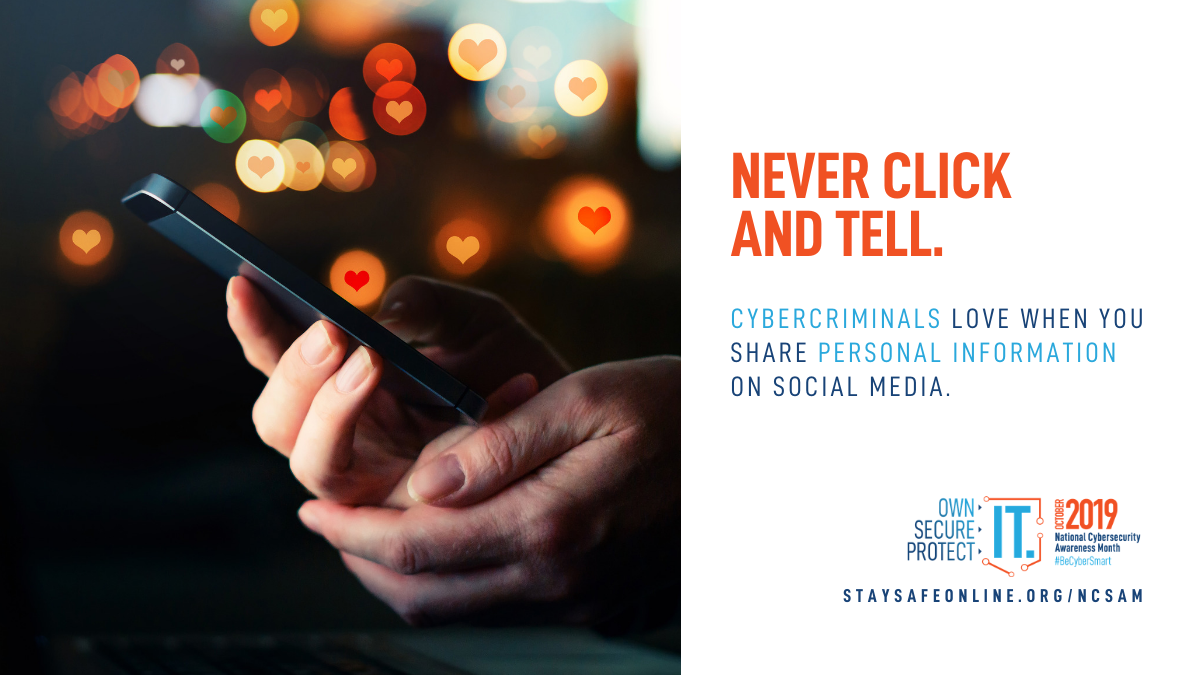Own Your Responsibility on Social Media
October 9, 2019

Social media is a great resource, but it doesn’t come without risks for you, your family, your friends, and your employer. When risk is present, we have a responsibility to keep ourselves and our community safe. This week, we highlight three areas of responsibility when using social media sites.
Own Your Content
Before posting anything on a social networking site, think about who it might affect, and whether it is safe to reveal that information. Are you protecting yourself? Are you protecting others? Are you protecting your employer?
You typically wouldn’t tell a stranger your personal information or beliefs. Yet we are quick to divulge personal information to the world, whether it’s posting on social media, talking with strangers on online forums, or filling out an online quiz that could be harvesting your responses or mining your data.
Also think about what websites you share or repost. You might have found an interesting article online that you want to share with friends, but is it littered with ads and malicious scripts running in the background? If so, don’t share it! Instead, look for the same information on a more reputable website.
Own Your Clicks
Links are everywhere, begging you to click on them. But attackers share links so that you’ll go to their malicious websites and give them personal information they shouldn’t have, or worse.
Before you click, scrutinize the link and where it goes. Do you recognize the URL? Is it a site you’ve been to before? Can you navigate there directly? Sometimes, you might still be unsure. Thankfully, there are free, safe tools to help give you insight about confusing URLs:
- Google Safe Browsing will check a URL to see if the website has hosted malware in the last 90 days.
- Link Expander is a simple website that can be used to expand short URLs to give you a better sense of where they go.
Own Your Trust
Even among friends, trust must be earned.
Consider the online personalities you follow, the links your friends share, and the websites you visit and contribute to. Do you have reason to trust them? This is especially important online, where information is freely shared, users are largely anonymous, and motivations are hidden.
Most websites are backed by organizations that are trying to make a profit. Think about how each website makes their money. Is it through ads? Subscription fees? Most social media websites make a profit from data gathered from their users. Make sure you understand how they’re using your information before you give it to them.
Social media has the potential for a lot of benefit for us in a connected society. But with the benefit comes risk. Own your responsibility to safeguard your community and yourself.
